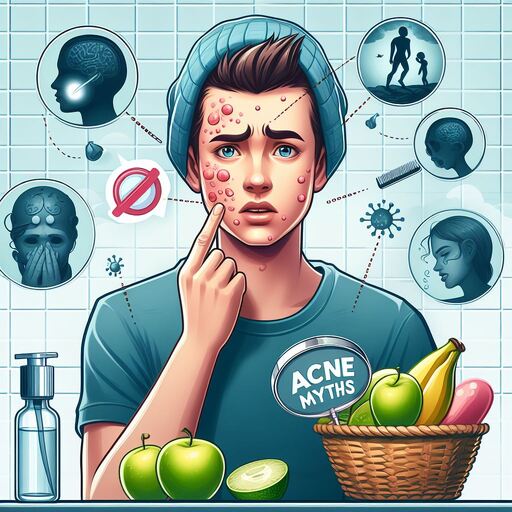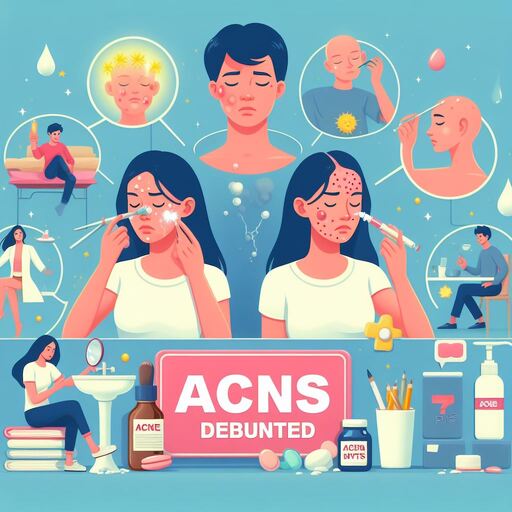Acne Myths Debunked Separating Fact from Fiction
Acne Myths Debunked Separating Fact from Fiction
Acne is a common skin condition that affects millions of people worldwide. Despite its prevalence, there are many myths and misconceptions surrounding acne that can confuse and frustrate those who are struggling with the condition. In this article, we will debunk some of the most common acne myths and provide accurate information on the causes, treatment options, and prevention strategies for acne.
Myth 1: Acne is Caused by Dirty Skin
Fact: While it’s true that acne can be caused by clogged pores due to dirt or oil buildup, it’s not the only cause. Other factors such as genetics, hormones, and stress can also contribute to acne development.
Myth 2: Eating Greasy Foods Causes Acne
Fact: While a high-fat diet may exacerbate acne symptoms, it is not the primary cause of acne. The link between diet and acne is not well understood, and more research is needed to determine the role of nutrition in acne development.
Myth 3: Acne Only Affects Teenagers
Fact: While acne is most common in teenagers due to hormonal changes during puberty, it can affect people of all ages. Acne can be caused by a variety of factors, including genetics, hormones, and stress, which can occur at any age.
Myth 4: Popping Pimples Can Prevent Acne
Fact: Popping pimples can actually worsen acne symptoms by spreading bacteria and causing inflammation in the surrounding skin. It’s best to leave acne treatment to professionals who have the knowledge and expertise to effectively treat the condition.
Myth 5: Acne Creams and Lotions Can Treat Acne
Fact: While over-the-counter acne creams and lotions may provide some relief from symptoms, they are not as effective as prescription medications or professional treatments. These products often contain harsh chemicals that can dry out the skin and cause irritation.
Acne Myths Debunked Separating Fact from Fiction
Prevention Strategies:
1. Wash Your Face Regularly: Washing your face regularly with a gentle cleanser can help prevent acne by removing dirt, oil, and dead skin cells from the surface of the skin.
2. Keep Your Skin Moisturized: Dry skin can lead to clogged pores and acne breakouts. Applying a lightweight moisturizer after washing your face can help keep the skin hydrated and healthy.
3. Avoid Excessive Sun Exposure: The sun’s rays can contribute to acne development by causing inflammation and irritation in the skin. Using sunscreen or avoiding direct sunlight can help prevent sun-related acne breakouts.
4. Maintain a Healthy Lifestyle: Eating a healthy diet, getting enough sleep, and managing stress levels can all contribute to clearer skin and reduced acne symptoms.
5. Seek Professional Help: If acne persists despite proper hygiene and lifestyle changes, it’s essential to seek professional help from a dermatologist or other healthcare provider. They can provide customized treatments that are tailored to the individual’s unique needs and circumstances.
Acne Myths Debunked Separating Fact from Fiction
Conclusion:
Acne is a common skin condition that affects millions of people worldwide. While there are many myths surrounding acne, it’s important to separate fact from fiction and understand the underlying causes and treatment options for acne. By practicing proper hygiene and lifestyle changes, seeking professional help when necessary, and separating truth from myth, individuals can manage their acne effectively and improve their overall health and wellbeing.
Acne Myths Debunked Separating Fact from Fiction

